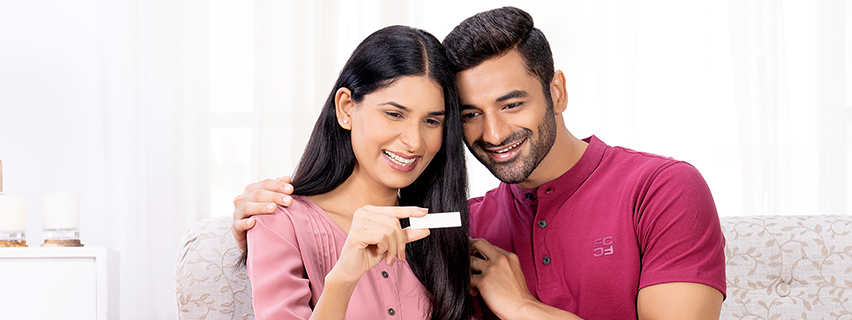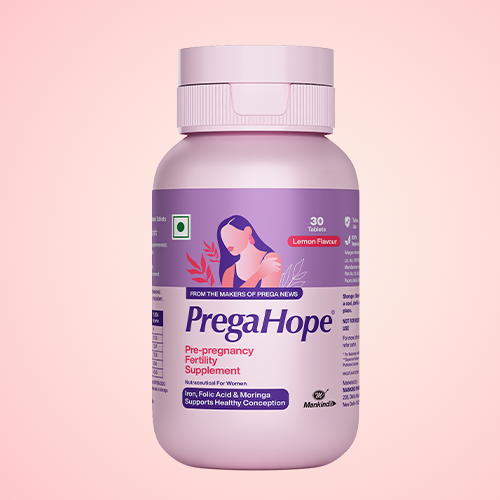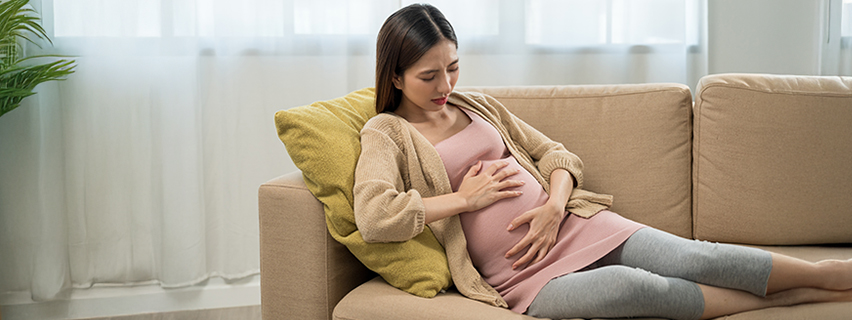Things to Do After a Positive Pregnancy Test
Often, you might have heard that women wait for months and years for that telltale plus sign. Discovering that you’re pregnant can be a life changing moment. Whether you’ve been planning it or it’s a surprise, that little plus sign on the pregnancy test kit is just the beginning of an incredible journey. But before you begin that journey, it is common to wonder about what to do after a positive pregnancy test. This detailed guide has got you covered with everything you need to know, from scheduling medical appointments to lifestyle changes and emotional care.
What to do After a Positive Pregnancy Test?
There are important precautions to be taken after a positive pregnancy test to ensure a healthy and informed beginning to motherhood. Here are the next steps after a positive pregnancy test.
1. Confirm the Pregnancy with a Second Test
Even though home pregnancy test kits like Prega News are over 99% accurate when used correctly, it’s still crucial to confirm your pregnancy through a medical professional. A positive pregnancy test can also happen if you are taking fertility drugs and similar medications. Therefore, it is the safest option to schedule a medical professional’s appointment after getting a positive pregnancy result. A doctor can conduct blood tests, repeated urine tests, a pelvic exam, or an early ultrasound, and then suggest the steps ahead.
2. Calculate the Expected Due Date
Knowing your estimated due date helps guide prenatal milestones and medical appointments. Although not completely accurate at this stage, it gives you an idea of how far you are in your pregnancy. Doctors typically calculate this date based on the first day of your last menstrual period (LMP), assuming a 28-day cycle. Besides, you can also use reliable pregnancy due date calculators available online.
3. Schedule your First Prenatal Appointment
Generally, the first prenatal visit occurs between 6-8 weeks of pregnancy. During this visit, the doctor reviews your medical history, conducts baseline tests, answers your doubts, and suggests medications to ensure you are safe during pregnancy.
4. Take Good Care of your Health
Although everything might appear to be the same on the outside, a lot of changes are happening on the inside. During the early days of your pregnancy, your baby’s vital organs and body parts begin to form. Take good care of your health during this crucial phase. Exercise regularly, eat plenty of fibre foods, vegetables, and proteins, and stay hydrated with plenty of water.
5. Talk to your partner and plan your announcement
While some couples choose to share the news immediately, others prefer to wait until after the first trimester, when the risk of miscarriage significantly decreases. It’s your personal choice. However, before you spread the good news, discuss with your partner about your feelings. Be honest with your fears, worries, and anxieties. Maybe your partner is also going through the same feelings as you. If possible, consult a healthcare provider and discuss your worries together. When deciding on letting others know, shortlist a few people who need to know the news sooner rather than later.
6. Know what to expect
After a positive pregnancy test, your body will undergo drastic changes from week to week. Knowing how to identify those changes and learning how to tackle them will help you ease your anxiety and prepare you for the journey ahead. You can learn about what to do after a positive pregnancy test through books, podcasts, online resources, and magazines. There are prenatal sessions that happen both offline and online that focus on the significant aspects of the pregnancy journey.
7. Organize your Medical Documents and Insurance
Create a pregnancy folder and organize all your medical history records, ultrasound photos, blood and prenatal care test results, and health insurance coverage. Being organized earlier with the necessary medical history papers helps to reduce stress later during your pregnancy journey.
8. Educate yourself gradually about Trimesters
This is the most crucial step among the next steps after a positive pregnancy test. Learn about the different trimesters of pregnancy and how they impact your physical and emotional life. Understand the developmental milestones of your baby in each trimester. Be aware of the common symptoms to expect and the important screenings of each trimester. Knowing empowers you to make informed decisions throughout your pregnancy journey.
9. Prepare yourself for an emotional ride
Be aware of the fact that pregnancy can trigger a rollercoaster of emotions—joy, fear, anxiety, and excitement. It is recommended to talk to a counselor if you are feeling overwhelmed. Preparing yourself in advance helps to balance your emotional well-being with your physical health during the pregnancy journey.
10. Start consuming prenatal vitamins
Your baby’s important body parts start forming in the early weeks of pregnancy, even before you know you’re pregnant. Therefore, based on the guidance of your family doctor, begin consuming prenatal vitamins immediately after a positive result.
That moment when you see a positive result on your pregnancy test kit is just the beginning of a beautiful chapter. Knowing what to do after a positive pregnancy test helps you take charge of your health and prepares you for the new journey ahead. Each step is important for your well-being and your baby’s healthy development. Recognize the fact that it’s normal to experience a wide range of emotions during pregnancy, and reach out to your spouse or close family member for support.
Frequently Asked Questions

Q. What should I stop doing after a positive pregnancy test?
A. Quit smoking and stop consuming alcoholic drinks. It increases complications during pregnancy and can hamper the baby’s health.
Q. What is the first thing to do after a positive pregnancy test?
A. After you find your pregnancy test kit results positive, the first thing you should do is schedule your appointment with a medical professional and conduct another test to be sure.
Q. When to tell family that you’re pregnant?
A. It completely depends on your personal choice. There is no single best time to tell your family that you are pregnant. However, many women tend to wait until the end of the first trimester due to higher risks of miscarriage during the early weeks.
Q. What food should I eat when pregnant?
A. One of the most important precautions to be taken after a positive pregnancy test is to follow a pregnancy-friendly diet. It includes lean protein, healthy fats, fruits, vegetables, and plenty of water.













































Leave a comment